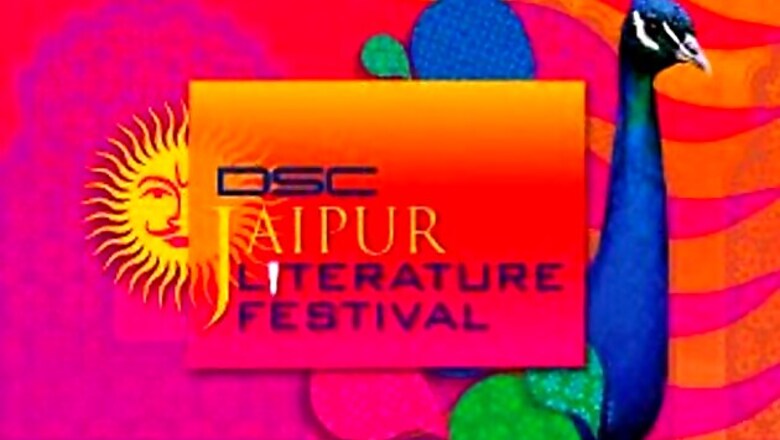
views
After being in the news for all the wrong reasons for two consecutive years, the Jaipur Literature Festival 2014 traversed geopolitical borders, overcame language barriers and discussed political, social and women's issues to exchange ideas without attracting any unwanted controversy.
"It was truly a literary festival," said a journalist who has been attending the five-day festival for the past three years. The seventh edition of the festival concluded Tuesday.
"The last two editions were marred by controversies, but this time discussions were informative and so was the line-up of speakers, especially international authors who had come here," he added.
In the last two editions, Ashis Nandy's loaded remarks about corruption in Dalit ranks and controversial writer Salman Rushdie's participation had provided the much-desired fodder to the news-starved media.
But the latest edition of the festival provided much-needed relief. From Nobel laureate Amartya Sen's refreshing seven-point wish list to British historian Antony Beevor's viewpoint about prolonged civil war in the world from the beginning of the First World War in 1914 to the collapse of the Soviet Union in 1989.
From journalist-author Adrian Levy's describing 26/11 Mumbai terror attack mastermind David Headley as an "extraordinary maverick chameleon character" to Muslim women talking confidently about sexuality in the Islamic world - globetrotting books made a brief stop-over at the bookworms' Mecca to give the audience a taste of history and politics.
Such an eclectic mix of over 250 speakers attracted over 200,000 visitors and the footfall reached a staggering high Sunday with 75,210 people joining the weekend melee at the 17th-century Diggi Palace.
"The footfall has increased 25 percent chiefly due to increased capacity and better traffic flow around the site," said an official release.
Deepika Pradhan, a history teacher from Delhi, too was impressed with the improved logistics management.
"Last year it was close to a stampede. There used to be long queues to go to the toilet. But the organisers have definitely pulled up their socks and made better arrangements. They have increased the number of toilets and that is a big relief," Pradhan, who had come here to listen to, among others, Iranian scholar Reza Aslan and feminist writer Gloria Steinem, told IANS.
Touted as the largest free literary festival, the event began on a small scale as part of the Jaipur Heritage International Festival in 2006. But then its co-founders, historian and author William Dalrymple and author Namita Gokhale have successfully managed to make it an independent annual pilgrimage for book lovers.
Between all this literati and intellectual debates and acknowledgement of growing footfalls lies a bewildered and weary audience that is exhausted of this hullabaloo about nothing, as many of them feel the festival has become more of a carnival for pseudo-intellectuals.
"It used to be an intimate affair with the authors. There was a select audience and authors could be reached easily, unlike now when one struggles to find a decent place to stand - forget about sitting," said Suman Varma, a lawyer, who had come from Delhi to listen to Lord Meghnad Desai.
"That charm is lost," he added, "You will see many people in the audience who have no clue about the speakers or have never read a book. But they are here so that they can show off through social networking sites."
"Pseudo-intellectuals have killed the joy. It has become a mela (carnival)," he mumbled.
While Dalrymple has announced that entry to the festival will always be free, journalist Gunjan Dua(name changed) feels the organisers should at least restrict entry of schoolchildren.
"Many students come here every year and hardly attend any session. Even if they do, they just talk. It is extremely annoying," said Dua.
"You can't blame them. Can you? When we were their age, we too would have done the same thing; made it an opportune moment for a picnic of sorts," she added, saying they (students) are always found near eating stalls.
But Gokhale isn't bothered about these distressed voices.
"Our joy and strength is our audience. We do this every year for them. People will say what they have to say, and we respect each opinion," Gokhale told IANS.

















Comments
0 comment